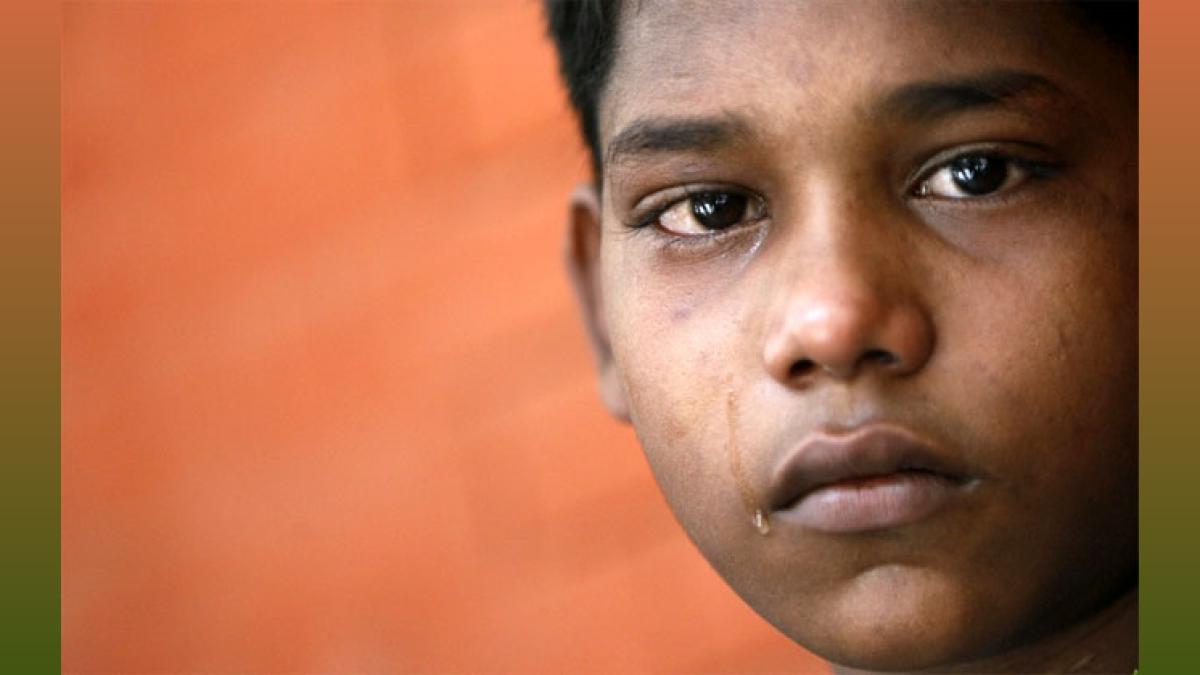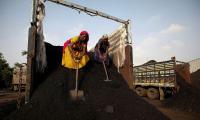Child Labor Elimination: Uniform 'Child' Definition Needed - Parliamentary Panel
A parliamentary panel highlights inconsistencies in child definitions across Indian laws, hindering child labor elimination efforts. Urgent action is needed to achieve the 2025 goal.

New Delhi, Dec 20 (PTI) The implementation of a policy to eliminate child labour has a long way to go before achieving its ultimate goal by 2025 and the country needs a uniform definition of 'child' under various laws, a parliamentary panel said in its report on Wednesday.
According the 52nd report of the Parliamentary Standing Committee on Labour, Textiles And Skill Development Committee tabled in the parliament, the panel found ambiguity in definition of child under various legislations.
It stated, "The implementation of the Policy has to go a long way for achieving the objective of elimination of child labour as per commitments made by the county after ratification of ILO conventions and to achieve the target stipulated in Sustainable Development Goal 8.7 to end all forms of child labour by 2025."
According to the Child and Adolescent Labour (Prohibition and Regulation) Act, 1986 (CALPRA), the panel noted, 'child' means a person who has not completed his fourteenth year of age or such age as may be specified in the Right of Children to Free and Compulsory Education Act, 2009, whichever is more.
The amendment made to the Act in 2016 defines the child falling in the age group of (14-18) years.
Under the Right of Children to Free and Compulsory Education Act, 2009, "Child' means a male or female aged six to fourteen years.
As per the Minimum Wages Act, 1948 vide its amendment in 1986 a 'child' is defined as a person who has not completed his fourteenth year of age.
At the same time, the Juvenile Justice (Care and Protection of Children) Act, 2015 defines 'child' as a person who has not completed eighteen years of age.
The term 'adolescent' is not defined in JJ Act, 2015.
The Committee has also been given to understand that the Rashtriya Kishore Swasthya Karyakaram under the Ministry of Health & Family Welfare defines an adolescent as a person between 10-19 years, the report said.
The Committee further noted that the employment of children in contravention of the CALPRA Act is a cognizable offence, whereas under the JJ Act, 2015, it is a non-cognizable offence.
The Committee desires that the discrepancies in the criteria for determination of age of child in the aforesaid Acts and other related Acts as well as the provisions of offence being congnizable/non-cognizable under CALPRA Act/JJ Act be examined with a view to ensuring that these do not lead to any ambiguity as well as delay in justice to the aggrieved children, it stated.
The panel suggested that in the positive list of occupations and processes where adolescent can work, the ministry should not include those which are hazardous in nature.
The panel urged the labour ministry to formulate suitable guidelines for the utilization of the fund (collected as fine for child labour employer) and also take immediate steps to increase the amount of fine of Rs 20,000/(govt) contribution of Rs 5,000, keeping in view the inflation and ensure timely deposit of the amount in the account of the rescued child/adolescent so as to have their secure future.
It also suggested the ministry to take steps for creating a district-level fund of appropriate amount for child labourers on the lines of the provisions contained in the Central Sector Plan for rehabilitation of bonded labourer for immediate relief and rehabilitation of child labourers.
It stated that the fund so created may also be used for the rehabilitation of trafficked and migrant child labourers repatriated from other states.
The panel recommend that in addition to the three/four times increase in the amount of fine, some stricter punishment in the form of cancellation of licence, attachment of property, etc. also need to be incorporated.
This may require amendments in the Act, which the Ministry of Labour & Employment should pursue in order to have zero tolerance on child labour, it stated.
It also suggested that in the case of deployment of child labour, in addition to the employer, the accountability of principal employer and traffickers be also fixed.
It noted that the functions of DPS (district project societies) with regard to uploading information of the rescued child on PENCIL Portal, awareness generation, facilitating vocational training, conducting baseline survey, etc. have not been assigned to anyone.
It recommend that an appropriate mechanism in this regard be put in place in a time-bound manner so that there is no discontinuity with regard to mandate assigned to DPS through a Standard Operating Procedure (SOP).
It noted that there are inherent provisions in Protection of Children from Sexual Offences Act, 2012 for action against police for not registering FIRs.
It desires that similar provisions need to be made in CALPRA Act.
It also desires that the responsibility of reporting children selling goods or begging at traffic lights be assigned to the traffic police and they may also be held accountable for not reporting such instances.
The panel suggested that a detailed SOP be worked out by the labour ministry in consultation with all concerned in a time-bound manner so as to avoid any confusion amongst stakeholders.
It suggested the ministry to pursue with other ministries for having child-friendly police stations and courts.
The Committee also desires that steps be taken to establish a National Level Child Tracking Mechanism to facilitate coordination among the states/Centre in such a way that the monitoring at district level is reported to states and from there to Centre by digital mode through coordinated efforts of all concerned so as to facilitate prevention, tracing, tracking, rescue, rehabilitation and reintegration of the rescued children.
According the 52nd report of the Parliamentary Standing Committee on Labour, Textiles And Skill Development Committee tabled in the parliament, the panel found ambiguity in definition of child under various legislations.
It stated, "The implementation of the Policy has to go a long way for achieving the objective of elimination of child labour as per commitments made by the county after ratification of ILO conventions and to achieve the target stipulated in Sustainable Development Goal 8.7 to end all forms of child labour by 2025."
According to the Child and Adolescent Labour (Prohibition and Regulation) Act, 1986 (CALPRA), the panel noted, 'child' means a person who has not completed his fourteenth year of age or such age as may be specified in the Right of Children to Free and Compulsory Education Act, 2009, whichever is more.
The amendment made to the Act in 2016 defines the child falling in the age group of (14-18) years.
Under the Right of Children to Free and Compulsory Education Act, 2009, "Child' means a male or female aged six to fourteen years.
As per the Minimum Wages Act, 1948 vide its amendment in 1986 a 'child' is defined as a person who has not completed his fourteenth year of age.
At the same time, the Juvenile Justice (Care and Protection of Children) Act, 2015 defines 'child' as a person who has not completed eighteen years of age.
The term 'adolescent' is not defined in JJ Act, 2015.
The Committee has also been given to understand that the Rashtriya Kishore Swasthya Karyakaram under the Ministry of Health & Family Welfare defines an adolescent as a person between 10-19 years, the report said.
The Committee further noted that the employment of children in contravention of the CALPRA Act is a cognizable offence, whereas under the JJ Act, 2015, it is a non-cognizable offence.
The Committee desires that the discrepancies in the criteria for determination of age of child in the aforesaid Acts and other related Acts as well as the provisions of offence being congnizable/non-cognizable under CALPRA Act/JJ Act be examined with a view to ensuring that these do not lead to any ambiguity as well as delay in justice to the aggrieved children, it stated.
The panel suggested that in the positive list of occupations and processes where adolescent can work, the ministry should not include those which are hazardous in nature.
The panel urged the labour ministry to formulate suitable guidelines for the utilization of the fund (collected as fine for child labour employer) and also take immediate steps to increase the amount of fine of Rs 20,000/(govt) contribution of Rs 5,000, keeping in view the inflation and ensure timely deposit of the amount in the account of the rescued child/adolescent so as to have their secure future.
It also suggested the ministry to take steps for creating a district-level fund of appropriate amount for child labourers on the lines of the provisions contained in the Central Sector Plan for rehabilitation of bonded labourer for immediate relief and rehabilitation of child labourers.
It stated that the fund so created may also be used for the rehabilitation of trafficked and migrant child labourers repatriated from other states.
The panel recommend that in addition to the three/four times increase in the amount of fine, some stricter punishment in the form of cancellation of licence, attachment of property, etc. also need to be incorporated.
This may require amendments in the Act, which the Ministry of Labour & Employment should pursue in order to have zero tolerance on child labour, it stated.
It also suggested that in the case of deployment of child labour, in addition to the employer, the accountability of principal employer and traffickers be also fixed.
It noted that the functions of DPS (district project societies) with regard to uploading information of the rescued child on PENCIL Portal, awareness generation, facilitating vocational training, conducting baseline survey, etc. have not been assigned to anyone.
It recommend that an appropriate mechanism in this regard be put in place in a time-bound manner so that there is no discontinuity with regard to mandate assigned to DPS through a Standard Operating Procedure (SOP).
It noted that there are inherent provisions in Protection of Children from Sexual Offences Act, 2012 for action against police for not registering FIRs.
It desires that similar provisions need to be made in CALPRA Act.
It also desires that the responsibility of reporting children selling goods or begging at traffic lights be assigned to the traffic police and they may also be held accountable for not reporting such instances.
The panel suggested that a detailed SOP be worked out by the labour ministry in consultation with all concerned in a time-bound manner so as to avoid any confusion amongst stakeholders.
It suggested the ministry to pursue with other ministries for having child-friendly police stations and courts.
The Committee also desires that steps be taken to establish a National Level Child Tracking Mechanism to facilitate coordination among the states/Centre in such a way that the monitoring at district level is reported to states and from there to Centre by digital mode through coordinated efforts of all concerned so as to facilitate prevention, tracing, tracking, rescue, rehabilitation and reintegration of the rescued children.
You May Like To Read
TODAY'S MOST TRADED COMPANIES
- Company Name
- Price
- Volume
- Vodafone-Idea-L
- 11.65 (+ 3.56)
- 106772451
- Alstone-Textiles
- 0.28 ( -3.45)
- 44187760
- Mangalam-Industrial
- 0.88 ( -2.22)
- 39177573
- Sunshine-Capital
- 0.27 (+ 3.85)
- 35956340
- GMR-Airports
- 104.40 (+ 6.37)
- 30453005





